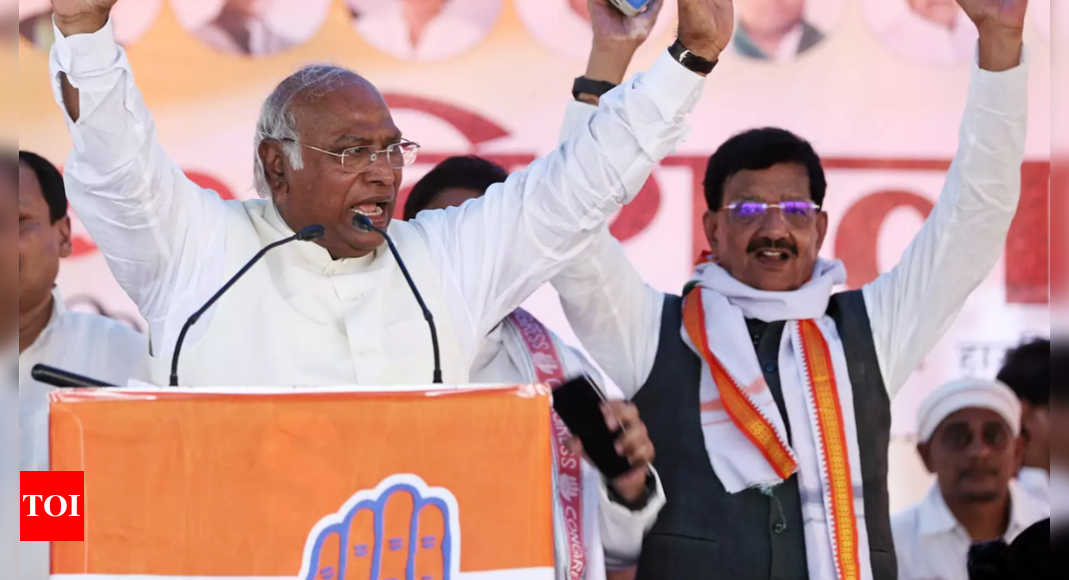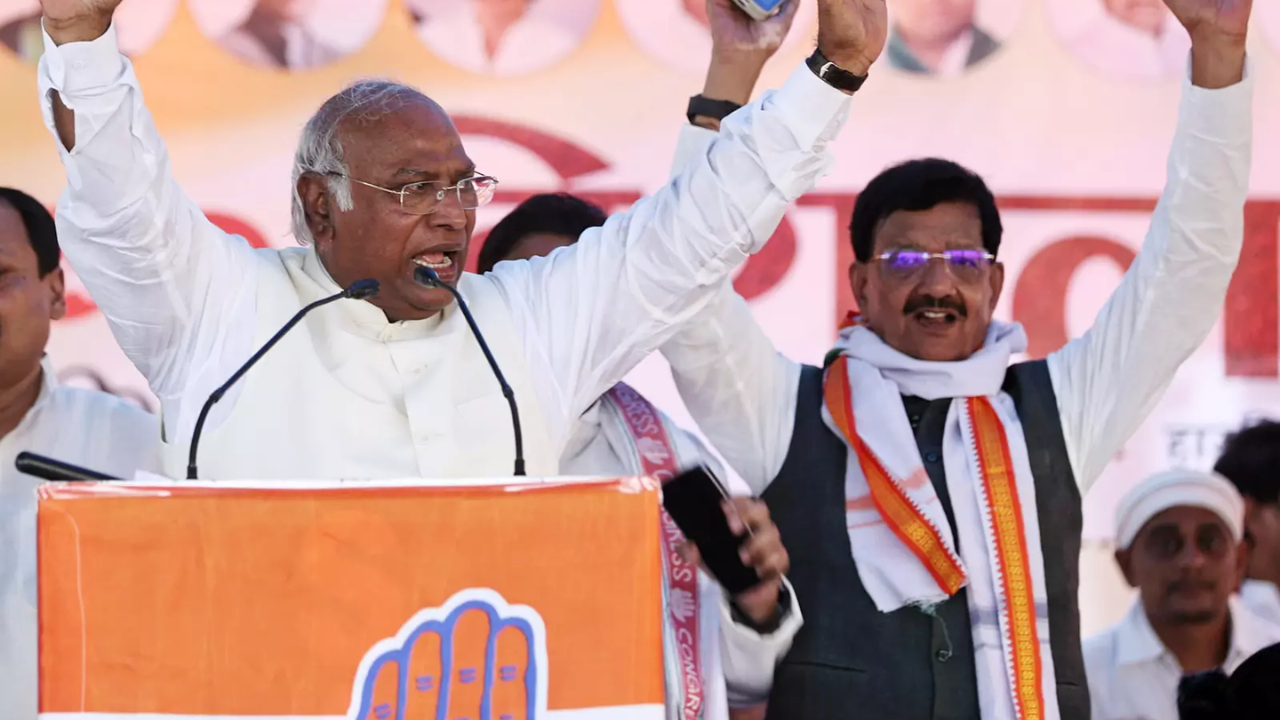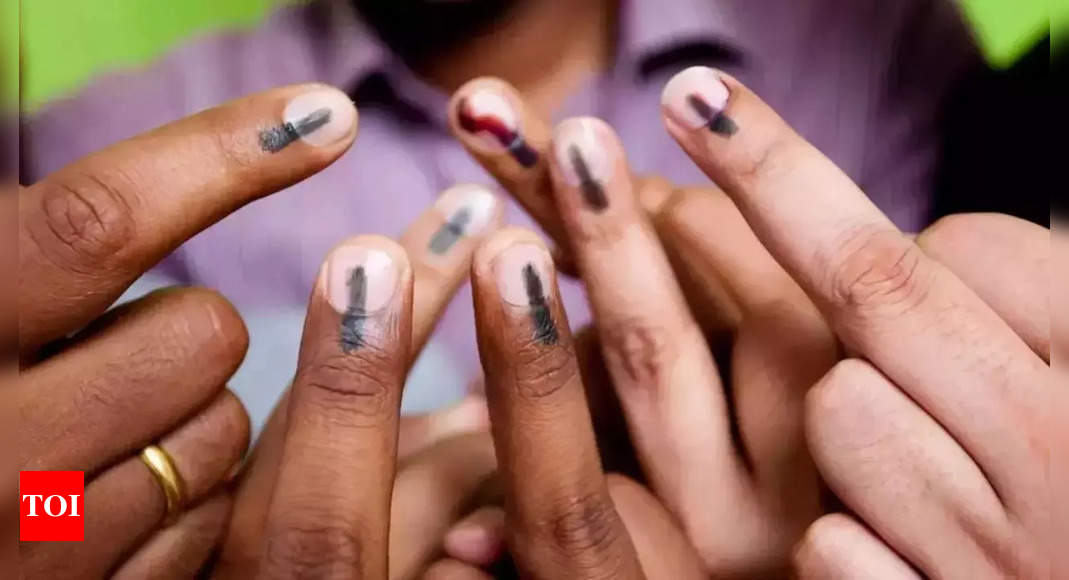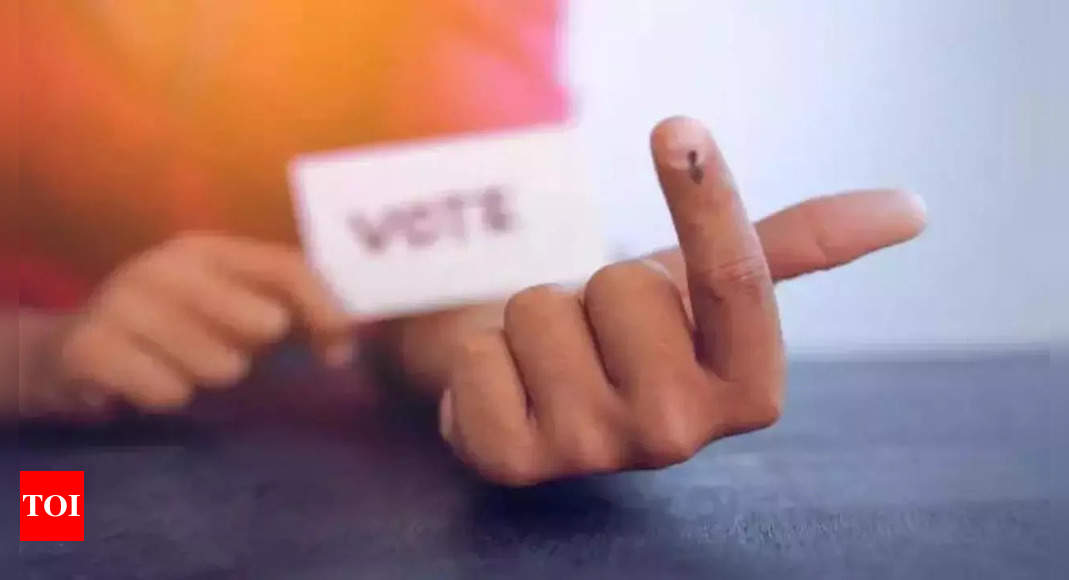NEW DELHI: Taking exception to the language of the Election Commission’s letter to him, Congress President Mallikarjun Kharge has written to the commission asking why they have not taken action against “blatantly communal and cateist” statements made by BJP leaders. He said the Congress “is on the side of the commission and stands for its strength and independence” but “it is for the officials of the Commission to now decide where they stand.”
Kharge pointed out that the letter that he had written earlier this week, even though an open letter, was clearly addressed to the INDIA bloc partners and not the EC.
He expressed “surprise” that the EC wanted to respond to this letter while ignoring several other complaints given directly to it. Asserting that he has certain “misgivings about the language of the letter” that the EC has addressed to him, Kharge took a dig at EC as he added that he would not press on that issue as he understands “the pressures they (EC) are working under”.
On Friday, Congress had termed EC’s response to Kharge‘s letter as a “permanent blot” on the face of a body, which is there to “ensure a level-playing field to all political parties”.
Kharge in the letter, he wrote to INDIA bloc parties earlier this week, underlined the “inordinate” delay in the release of final voter turnout of first two phases and a jump of around 5.5% over the initial projection. In an unusual move, the EC responded to Kharge’s open letter rejecting his allegations around voter turnout data as “baseless.”
Questioning the EC, Kharge asked on Saturday that “the lack of urgency shown by the Commission in taking action against blatantly communal and cateist statements being made by the leaders of the ruling party that vitiates the electoral process seems puzzling.”
“I am also puzzled by the need to write that the ‘Commission is not legally bound to publish any voter turnout data at aggregate level of a constituency or state’, though it is factual,” he added. Kharge said that he is sure that many voters would be surprised too. “Many voters who are deeply interested in the elections would also like to see the absolute number of votes polled to be put out in the public domain by the Commission directly,’ he said.
He concluded by expressing disappointment and said, “it should be our collective endeavour to safeguard democracy and protect the independent functioning of the ECI.”
Kharge pointed out that the letter that he had written earlier this week, even though an open letter, was clearly addressed to the INDIA bloc partners and not the EC.
He expressed “surprise” that the EC wanted to respond to this letter while ignoring several other complaints given directly to it. Asserting that he has certain “misgivings about the language of the letter” that the EC has addressed to him, Kharge took a dig at EC as he added that he would not press on that issue as he understands “the pressures they (EC) are working under”.
On Friday, Congress had termed EC’s response to Kharge‘s letter as a “permanent blot” on the face of a body, which is there to “ensure a level-playing field to all political parties”.
Kharge in the letter, he wrote to INDIA bloc parties earlier this week, underlined the “inordinate” delay in the release of final voter turnout of first two phases and a jump of around 5.5% over the initial projection. In an unusual move, the EC responded to Kharge’s open letter rejecting his allegations around voter turnout data as “baseless.”
Questioning the EC, Kharge asked on Saturday that “the lack of urgency shown by the Commission in taking action against blatantly communal and cateist statements being made by the leaders of the ruling party that vitiates the electoral process seems puzzling.”
“I am also puzzled by the need to write that the ‘Commission is not legally bound to publish any voter turnout data at aggregate level of a constituency or state’, though it is factual,” he added. Kharge said that he is sure that many voters would be surprised too. “Many voters who are deeply interested in the elections would also like to see the absolute number of votes polled to be put out in the public domain by the Commission directly,’ he said.
He concluded by expressing disappointment and said, “it should be our collective endeavour to safeguard democracy and protect the independent functioning of the ECI.”










